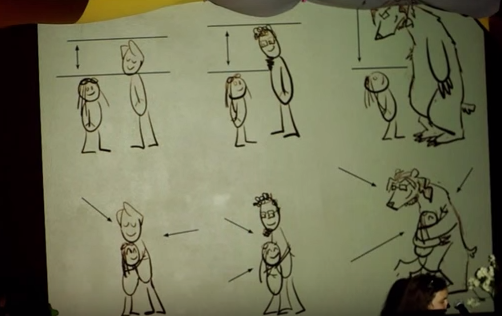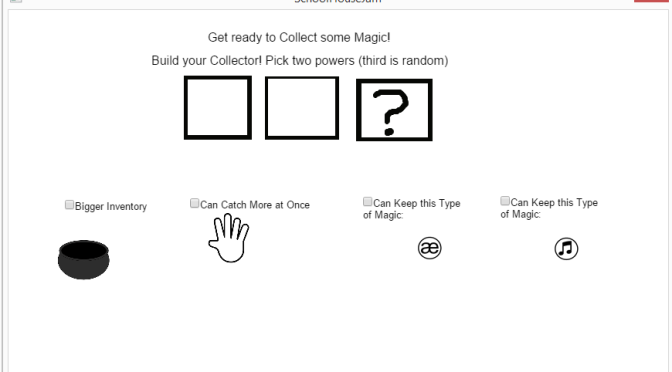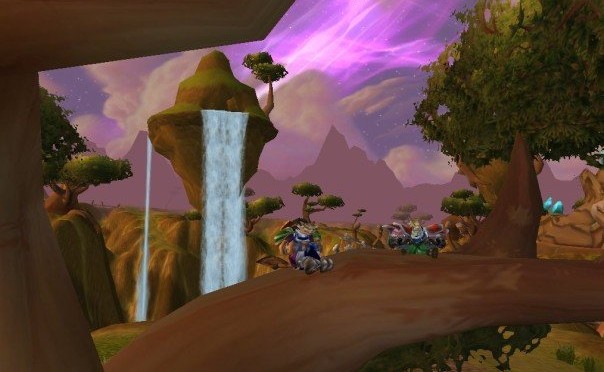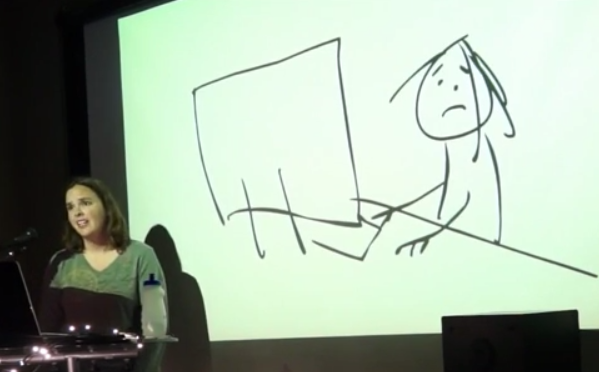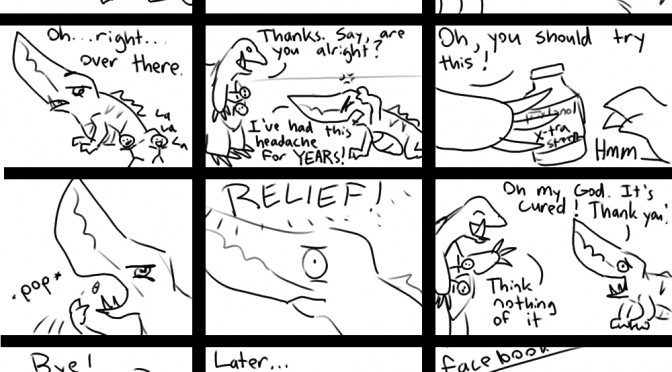I gave a talk at Glitch City Demo Night about Masterful Hugging. OR IS IT??
Tag Archives: featured
Schoolhouse Jam Postmortem
Last weekend I participated in (and assisted in the wrangling of) a small experimental game jam focused on games for classroom learning. I’ve always recognized educational games from afar as something challenging and impressive, but this was my first time dabbling in it myself, with 0 experience making an educational game. I learned SO much about educational game design and the shortcomings of my own design intuition in this context, even from one small weekend prototype. It was incredibly valuable!
Flaws and Games and Character
On one of my recent “class” streams, a conversation evolved about how the flaws of games can give them character. It really started out as looking streamlining between generations of genres. In our case we were playing Borderlands 2, and I was observing how a lot of tropes of that generation were present in Destiny as a more modern “rpg-shooter” hybrid, but had been hyper streamlined. Some of the older conventions of the late PS3/XBox 360 era of shooters now felt a little clunky – things like waiting on NPC positioning for events to occur, the “turn-in” experience, accomplishing different tasks via different menus which sometimes had limited access, how sometimes the relationship between systems and options made some actions obsolete and other decision making processes feel paralyzing.
Non-Game Design Books that Game Designers Should Read
After some twitter musings the other night, I got several requests for my list of “books that aren’t about game design that I think game designers should read.” Now, don’t get me wrong, there are many wonderful texts on game design and game development in general with all sorts of useful information. However, I am fond of supplementing these reads with books from unrelated fields that still have something to teach about game design. I think it is because you have to forge your own connections when you read them, and when you do your own digging and have the insights yourself without them being presented to you, I find it tends to make the insights a little stickier. Basically it makes for good learnin’, so here we go!
Continue reading Non-Game Design Books that Game Designers Should Read
The Lisa Brown Method of Level Design
A talk I gave at Glitch City Demo Night about level design. OR IS IT?
https://www.youtube.com/watch?v=dc36cGaIr3Q
How I got into games: on delayed artistic expression
Just a warning, this post is long, and jumps wildly from tales of pre-industry Lisa to silly kaiju comics. Just roll with it.
Continue reading How I got into games: on delayed artistic expression
Spontaneous Shared Experiences in Games
So, last night at Project Horseshoe a series of interesting thoughts flittered by that I wanted to capture down. A group of us were talking about mastery, autonomy, and relatedness in games and the relatedness category struck me to share a recent observation. Some time ago my brother posted on Facebook a thread that started a conversation about spontaneous shared experiences in public transportation, and sadness for people who missed out on them in a primarily “car” society. The story was about how on a bus ride, a bright yellow maple leaf managed to drift in through an open window, and everyone on the bus stopped what they were doing to watch it. Then, talk about how delightful it was to make that spontaneous connection. Another story was about a man bringing a bag of potatoes on a train and spilling them, and everyone in the car was suddenly running around, chasing wayward potatoes and laughing.
This got me thinking about how this phenomenon shows up in multiplayer games. It’s not the same as, say, an event in World of Warcraft where everyone on the realm gathers together in one place to participate in it (something like the holiday bosses). Rather, it’s more when people are together going about their own ways, and something surprising happens at that moment to just that group of people, so that they somehow instinctively know that only they experienced it, and so it brings them close together for a moment.
An example that I extracted from my memory was a particular game of League of Legends I’d played some time ago. Now, here is an already-shared experience happening within a designed context, because we are two teams playing against one another to win. Someone on my team was playing Shen (a character who can teleport to another of his teammates anywhere on the map) and their team had a Warwick (a character who can teleport a short distance onto an enemy player, latch onto them and more or less stun them and deal damage). Warwick and Shen were off on one side of the map, and Warwick was chasing down Shen, who was low on health, to get in range for the kill. In a desperate attempt to save himself, Shen did his teleport move, which has a long (in the context of a fast paced game) animation it must perform before he actually teleports. At the very, very last moment of the animation, Warwick got within range to do HIS short teleport ability, and jumped to Shen at the EXACT moment he teleported. This meant that, through a bug, Warwick teleported along with Shen right into the middle of our team, where we of course obliterated him.
The chat lit up on both teams:
“LOLOLOLOLOLOL”
“OMG what just happened!”
“That was amaaaaaaaaaazing!’
And on and on. Even poor Warwick was laughing. It felt hilarious and wonderful, and I still remember that moment out of the hundreds of League of Legends games I have played, and tell that story to people. It was as though we all knew in that moment that we’d be telling the story of what happened to friends for years to come, and it made me feel like I had a special connection to this group of mostly strangers for a passing moment.
So, what made that moment feel so good? What made it work so perfectly? I’m going to try and break it down a little:
1. Surprise. Since it was a bug, it definitely was unexpected, and so surprised everyone.
2. Logical context. The bug made perfect sense within the context of how everyone understood the rules of these two players’ moves. Of course it made sense that if Warwick teleported onto Shen right as he teleported away, that Warwick would come along for the ride. We all knew it wasn’t supposed to happen, but what did happen made logical sense in a kind of extra layer of narrative we had for how those abilities worked. If the bug had been something unrelated to the relationship between these two abilities, like if Warwick scaled really big randomly or got stuck in his ult animation loop or exploded spontaneously, it would have been surprising, but not as delightful as what really happened.
3. Reversal. One moment Shen is in dire straits, surely about to die, and then suddenly in the act of the killing blow, it is Warwick who finds himself in an impossible situation (stranded alone on the other side of the map in the middle of the entire enemy team). Humans love a good reversal.
4. No designed intent. Because this was obviously a bug, everyone knew they were witnessing a moment that had not been “designed” for them, which somehow made it feel more authentic, and more worth remembering and sharing. If I’d been together with a group of people and witnessed a random event that had been designed into the game, I might feel surprise and delight, but I don’t think I’d feel that same shared connection with the other people who had also witnessed it.
Okay, so these spontaneous shared experiences in games are wonderful things, but can we design for them? Can we create systems that have opportunities for these things to occur that do not feel like a designed event? (Preferably but not introducing a game with bugs in it) I think when players recognize something as the result of an intentional design, it goes less from spontaneous delight and more to excavation – can the thing be dug up and cataloged away – another valid experience but not exactly the kind I need to recreate.
Do the spontaneous shared connections need to require all of these elements? No, I don’t think so. Some other stories we shared contained no reversal, for example, but shared commiseration. I don’t think this is a blueprint for what these must be, just a dissection of one in particular.
Food for thought.
